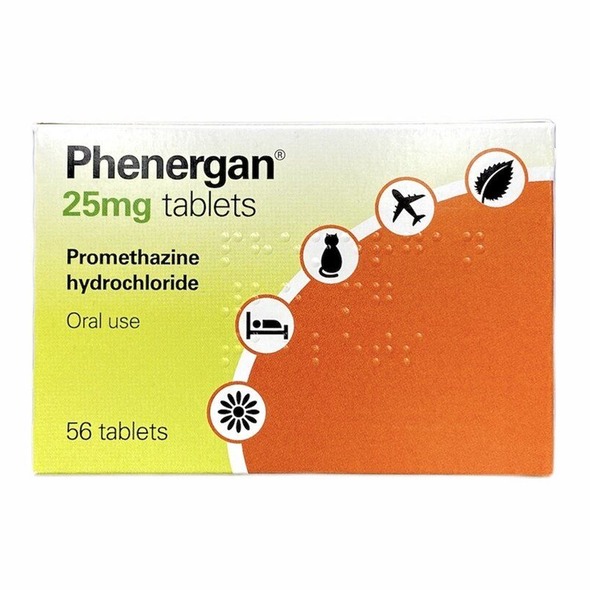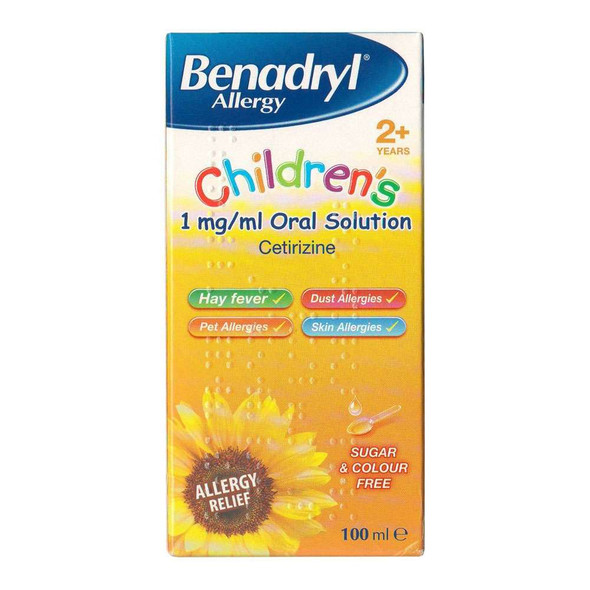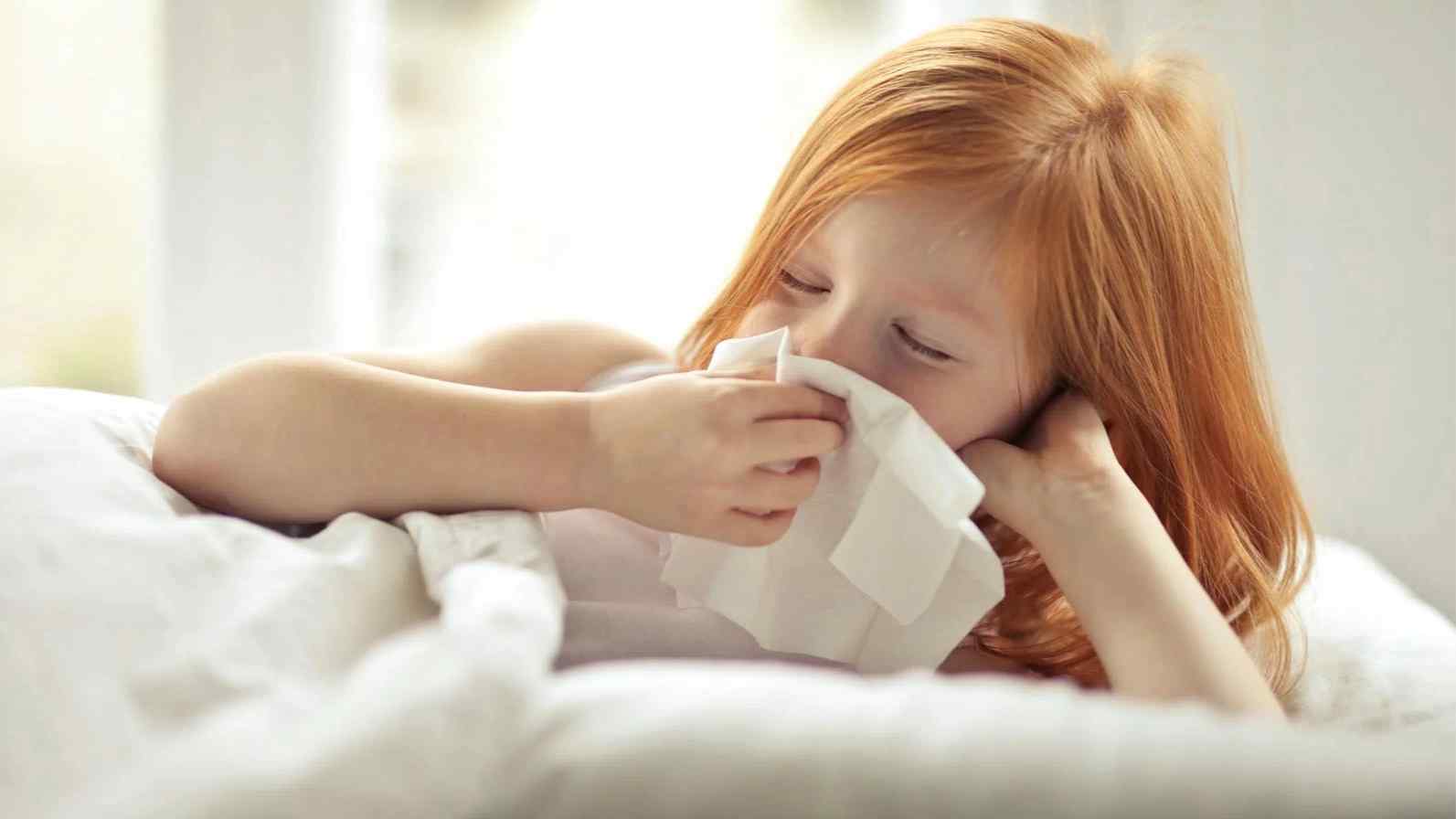- Product
- Qty in Cart
- Quantity
- Price
- Subtotal
-

Phenergan 25mg 56 Tablets
Phenergan£10.89Phenergan 25mg Tablets provides effective relief from the symptoms of hay fever, allergies, nettle rash, hives, insomnia, nausea, vomiting and travel sickness. Contains an effective sedative, that aids restful sleeping Do not use if pregnant or...Qty in Cart: 0Price:£10.89Subtotal: -

Hayleve Allergy 28 Tablets
Hayleve£2.89Hayleve is used to treat the allergic symptoms of hayfever and other allergies Suitable for adults and children over 6 years If you are pregnant or breast-feeding, think you may be pregnant or are planning to have a baby, ask your doctor or...Qty in Cart: 0Price:£2.89Subtotal: -

Piriton Allergy 30 Tablets
Piriton£7.59Piriton Allergy Tablets are used to treat the allergic symptoms of hayfever and other allergies Do not give to children under 6 years Talk to your doctor before taking Piriton Allergy Tablets if you are pregnant or breast feeding Do not use...Qty in Cart: 0Price:£7.59Subtotal: -

Numark Cetirizine 10mg 60 Tablets
Numark£3.59Numark Cetirizine 10mg 60 Tablets are designed to provide relief from allergy symptoms such as sneezing, itching, watery eyes, and runny nose. This over-the-counter medication is ideal for individuals suffering from allergies and hayfever. Each tablet...Qty in Cart: 0Price:£3.59Subtotal: -

Piriton Allergy 60 Tablets
Piriton£12.39Piriton Allergy Tablets are used to treat the allergic symptoms of hayfever and other allergies Do not give to children under 6 years Talk to your doctor before taking Piriton Allergy Tablets if you are pregnant or breast feeding Do not use...Qty in Cart: 0Price:£12.39Subtotal: -

Allerief 2mg/5ml Oral Solution 150ml
Allerief£14.19The Allerief 2mg/5ml Oral Solution 150ml is a powerful medication designed to provide relief from allergies and hayfever symptoms. Manufactured by the trusted brand, Allerief, this oral solution offers a convenient and effective way to alleviate...Qty in Cart: 0Price:£14.19Subtotal: -

Numark Antihistamine and Allergy Relief 2mg/5ml Oral Solution 150ml
Numark£13.69Numark Antihistamine and Allergy Relief 2mg/5ml Oral Solution 150ml provides fast and effective relief from allergies and hayfever symptoms. This oral solution is specifically formulated to alleviate sneezing, itching, watery eyes, and runny nose caused...Qty in Cart: 0Price:£13.69Subtotal: -

Zirtek Allergy Relief 7 Tablets
Zirtek£4.29Zirtek Allergy Relief Tablets give effective relief from hayfever, dust or pet allergies and urticaria. They help you manage allergy related sneezing, irritated, runny and blocked up nose, itchy, red and watering eyes and skin rashes. Gets working...Qty in Cart: 0Price:£4.29Subtotal: -

Piriton Syrup 150ml
Piriton£13.99Piriton Syrup is used to treat the allergic symptoms of hayfever and other allergies Do not give to children under 12 months Talk to your doctor before taking the Piriton Syrup if you are pregnant or breast feeding Do not use continuously for more...Qty in Cart: 0Price:£13.99Subtotal: -

RelonChem Loratadine Peach Solution 100ml
RelonChem£17.39This product relieves symptoms associated with allergic rhinitis (for example, hayfever), such as sneezing, runny or itchy nose and burning or itchy eyes and may also be used to help relieve symptoms of urticaria (itching and redness), which is often...Qty in Cart: 0Price:£17.39Subtotal: -

Genesis Loratadine 10mg 30 Tablets
Genesis£2.59This product can relieve symptoms such as sneezing, runny or itchy nose; irritation inside the nose and eyes; itchy or burning eyes and is also used to help relieve the symptoms associated with skin conditions such as rash, itching and...Qty in Cart: 0Price:£2.59Subtotal: -

Dr Reddy's Cetirizine Hydrochloride 10mg 30 Tablets
Dr Reddy£2.89Dr Reddy's Cetirizine Hydrochloride 10mg Tablets are used for the relief of symptoms of hayfever and other allergic conditions (e.g. sneezing, runny or itchy nose) or for skin rashes (chronic nettle rash, idiopathic urticaria) Not suitable for...Qty in Cart: 0Price:£2.89Subtotal: -

Accord Loratadine 10mg 30 Tablets
Accord£3.19Accord Loratadine 10mg 30 Tablets by Accord brand is an effective allergy relief medication in the Allergy & Hayfever category. Each tablet contains 10mg of loratadine, a non-drowsy antihistamine that helps alleviate symptoms such as sneezing, runny...Qty in Cart: 0Price:£3.19Subtotal: -

Pinewood Loratadine 5mg/5ml Syrup 100ml
Pinewood£12.59Loratadine is used to relieve the symptoms of hayfever (allergic rhinitis) in adults and children Not to be taken by children aged under 2 years If you are pregnant or breast-feeding, think you may be pregnant or are planning to have a baby, ask...Qty in Cart: 0Price:£12.59Subtotal: -

Crescent Chlorphenamine 4mg 28 Tablets
Crescent£2.89This product is used to relieve the symptoms of allergic conditions, such as hay fever, inflammation of the nose and upper airways, allergic reactions to medicines, nettle rash, local itching, severe skin rash with swelling, food allergies and insect...Qty in Cart: 0Price:£2.89Subtotal: -

Teva Cetirizine 30 Tablets
Teva Pharma£2.49Cetirizine dihydrochloride is the active ingredient of Cetirizine 10mg Film-coated Tablets, it is an antiallergic medication Do not give this medicine to children below the age of 6 years If you are pregnant or breast-feeding, think you may be...Qty in Cart: 0Price:£2.49Subtotal: -

Numark Antihistamine and Allergy Relief 4mg 28 Tablets
Numark£2.29Numark Antihistamine and Allergy Relief 4mg 28 Tablets provide fast and effective relief from allergies and hayfever symptoms. Each tablet contains 4mg of the active ingredient to help alleviate sneezing, watery eyes, and itching caused by allergies...Qty in Cart: 0Price:£2.29Subtotal: -

Almus Chlorphenamine 4mg 28 Tablets
Almus£2.89Almus Chlorphenamine 4mg 28 Tablets are an effective allergy relief medication designed to provide fast and long-lasting relief from symptoms associated with allergies and hayfever. These tablets contain 4mg of chlorphenamine, a powerful antihistamine...Qty in Cart: 0Price:£2.89Subtotal: -

Benadryl Allergy Relief 48 Capsules
Benadryl£24.49This medicine is used to relieve the symptoms of hay fever and other allergic conditions such as pet allergies, dust allergies and skin reactions Suitable for adults and children aged 12-65 years Consult doctor first if pregnant or...Qty in Cart: 0Price:£24.49Subtotal: -

Almus Loratadine Allergy Relief Tablets 30
Almus£2.09The Almus Loratadine Allergy Relief Tablets provide fast-acting relief from allergies and hayfever symptoms. Each pack contains 30 tablets of Loratadine, a non-drowsy antihistamine that effectively treats sneezing, itching, watery eyes, and runny nose...Qty in Cart: 0Price:£2.09Subtotal: -

Afterbite Xtra Soothing Gel 20g
After Bite£6.29The Afterbite Xtra Soothing Gel 20g by After Bite is the perfect solution for quick relief from insect bites and stings. This gel provides instant relief with its soothing formula that effectively alleviates itching, swelling, and irritation. Its small...Qty in Cart: 0Price:£6.29Subtotal: -

Zirtek Allergy Relief 30 Tablets
Zirtek£18.59Zirtek Allergy is an antiallergic medication Do not give this medicine to children below the age of 6 years If you are pregnant or breast-feeding, think you may be pregnant or are planning to have a baby, ask your doctor for advice before taking...Qty in Cart: 0Price:£18.59Subtotal: -

Zirtek Allergy Relief 21 Tablets
Zirtek£12.49Zirtek Allergy is an antiallergic medication Do not give this medicine to children below the age of 6 years If you are pregnant or breast-feeding, think you may be pregnant or are planning to have a baby, ask your doctor for advice before taking...Qty in Cart: 0Price:£12.49Subtotal: -

Zirtek Allergy Solution Once a Day 150ml
Zirtek£14.19Zirtek Allergy is an antiallergic medication Do not give this medicine to children below the age of 2 years If you are pregnant or breast-feeding, think you may be pregnant or are planning to have a baby, ask your doctor for advice before taking...Qty in Cart: 0Price:£14.19Subtotal: -

Sudafed Decongestant 12 Tablets
Sudafed£7.49Relieve nasal congestion with Sudafed Decongestant 12 Tablets. These tablets effectively provide fast-acting relief from sinus pressure and congestion caused by allergies and hayfever. Manufactured by Sudafed, a trusted brand in decongestants, these...Qty in Cart: 0Price:£7.49Subtotal: -

Clarityn 60 Tablets
Clarityn£22.89Clarityn Allergy Tablets help to reduce your allergy symptoms by stopping the effects of a substance called “histamine”, which is produced in the body when you are allergic to something Suitable for adults and children over 6...Qty in Cart: 0Price:£22.89Subtotal: -

Benadryl Children's Allergy Oral Solution 100ml
Benadryl£14.39Benadryl Allergy Children’s Oral Solution treats hay fever and year-round allergies such as dust or pet allergies Suitable for adults and children over 2 years Consult doctor first if pregnant or breastfeeding DO NOT USE if your child...Qty in Cart: 0Price:£14.39Subtotal:
Understanding Children's Allergy and Hayfever
Allergies in children's bodies are a response to harmless substances, which the immune system mistakenly identifies as harmful. These allergens can range from pollen to pet dander, dust mites, and certain foods. One of the most common types of children's allergy is hayfever, also known as allergic rhinitis. Hayfever occurs when children’s immune systems react to pollen from trees, grasses, or weeds, causing symptoms like sneezing, itchy eyes, and a runny nose.
Causes and Symptoms of Children's Allergy and Hayfever
Chidren's symptoms of allergies and hayfever can vary, but there are several common signs that parents should watch for. These include sneezing, a runny or stuffy nose, itchy or watery eyes, and coughing. Children's experience can include fatigue, an itchy throat or ears, and irritability due to the discomfort.
It's important to differentiate between hayfever symptoms and those of a common cold. While both conditions can cause sneezing and a runny nose, hayfever symptoms tend to persist as long as the child is exposed to the allergen. In contrast, cold symptoms typically last only a few days. If symptoms last for weeks or are triggered by specific allergens like pollen, it may be a sign of hayfever rather than a cold.
How to Manage Children's Allergy and Hayfever
Managing children's allergies and hayfever effectively involves a mix of preventive measures and treatments. Here are some practical tips for parents to help ease their child's symptoms.
To reduce exposure to allergens, keeping windows closed during peak pollen seasons is essential. This helps prevent pollen from entering your home or car. Encouraging good hygiene, such as regular handwashing and face washing, can also help remove allergens from your child's skin and eyes, providing relief. On days when pollen levels are particularly high, it's a good idea to limit outdoor activities, especially during peak times, which are usually early morning or late afternoon.
For better sleep and comfort, allergy-proof bedding is a great solution. Dust mites are a common allergen, and using hypoallergenic pillows and bedding can minimise exposure. When it comes to medication, there are various over-the-counter and prescription options for managing allergy and hayfever symptoms. These include antihistamines, nasal sprays, and eye drops. However, it’s always important to consult with a healthcare professional before administering any medication to your child to ensure it is safe and appropriate for their age and condition.
There are several treatment options available to help manage children's allergy and hayfever symptoms, offering relief and improving their overall comfort. Antihistamines are commonly used to block the effects of histamines, which are chemicals responsible for causing allergy symptoms. These medications come in oral or liquid form and can help reduce sneezing, runny noses, and itching. Nasal sprays, particularly steroid nasal sprays, are effective in reducing inflammation in the nasal passages, helping to control symptoms like congestion and a runny nose.
Children's allergy and hayfever symptoms can present as itchy, watery eyes. Allergy eye drops are available and can provide relief by targeting the eye irritation caused by hayfever. Each of these treatments can play a role in managing symptoms for chinldren's allergy, but it's always essential for parents to consult with a healthcare provider before administering any medication to ensure they are choosing the right approach for their child's allergy and hayfever.
Conclusion
Children's allergy and hayfever are common conditions that can affect your child’s daily life, but with the right treatments and preventative measures, they can be managed effectively. By recognising the symptoms of children's allergy and hayfever, using the appropriate treatment options, and limiting exposure to allergens, you can help ensure your child’s comfort and well-being. If you have concerns about your child’s allergies, it’s always best to consult a healthcare professional for personalised advice and care.

